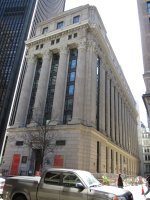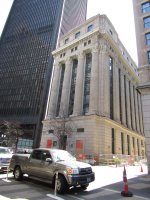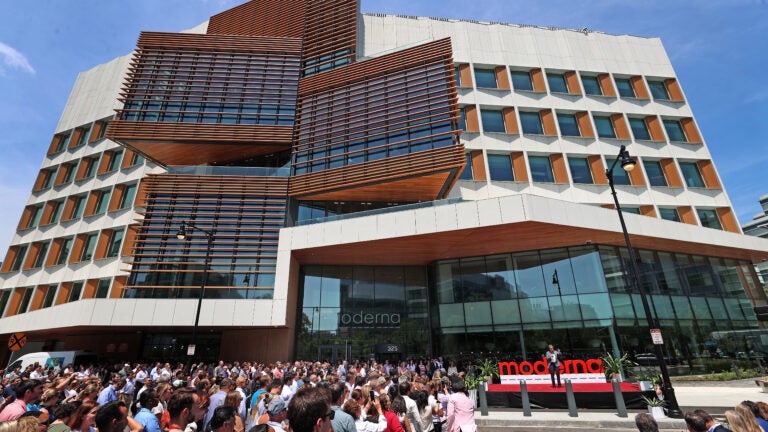People on reddit/twitter…etc who work in biotech are sounding the alarm about what they are seeing transpiring in the biotech sector in boston/cambridge as far as occupancy, hiring, layoffs…etc. Theres been a few articles popping up here and there saying that the sector is possibly entering a slump as well. It seems that the whispers are starting to become a chorus. This combined with bad post pandemic occupancy rates in office like mentioned above along with office buildings selling at s steep discount is definitely something to keep an eye on.
A couple articles
Unleased lab space. Plunging valuations. Layoffs. In Massachusetts, the biotech slump is taking its toll.
“This was supposed to be the year of biotech’s comeback.
At least that was the hope of many in the sector who started 2025 pointing to scientific advances and falling interest rates. Some foresaw a pickup in buyouts and initial public offerings, rewarding investors in the highly risky and cyclical business of bringing drugs to market.
But three months into the new year, the mood has soured and the outlook has clouded as a cyclone of threats and unknowns gathers speed. Despite some notable successes, including
US approval in January of a nonopioid painkiller by Boston biotech Vertex, there are few signs the industry — responsible for more than 115,000 Massachusetts jobs — is pulling out of its four-year slump.
The biotech index fund XBI is down nearly 5 percent since the start of the year. The biotech cluster based in Cambridge and Boston, the nation’s largest, grapples with a record 16.1 million square feet of unleased lab space. And hiring remains soft, with many biopharma companies continuing to lay off workers — though at a slower pace than last year — and tap part-time “fractional” executives to save money……..”
Local biotechs face a long winter, despite hopes of rebound in 2025.
www.boston.com
‘I think it is actively happening’: Is Boston’s biotech industry doomed?
What we’re witnessing may be a remaking of biotech — surprising even to those in the industry. After five months of searching, Albert ultimately found a job at a small Boston-based biotech, where he focuses on cancer research. But
some in the industry worry that we face the prospect of Kendall Square operating with a fraction of the folks who work there now, leading to knock-on effects on restaurants, retail, and housing.
In Massachusetts, biotech has been an important driver of jobs and wealth for decades, with Kendall Square at the epicenter of that growth. In 2024, the state had more than 140,000 jobs in the life sciences,
according to MassBioEd. And the average salary was nearly $200,000. But what if those jobs are in jeopardy?
America has seen entire industries slip away before, notes Sandra Barbosu, associate director of the Information Technology and Innovation Foundation, a nonpartisan think tank in Washington. Her recent report, “
Not Again: Why the United States can’t afford to lose its biopharma industry,” points out that it happened with “telecommunications equipment, semiconductors, television, solar panels, and chemicals.” And, she believes, it could happen with biotech.
“I think it is actively happening,” said Isaac Stoner, chief executive of Boston-based Octagon Therapeutics. “When an industry goes extinct or faces this existential moment, it causes broad economic pain for the region for a while. This happened when we lost our leadership position in computing in the late eighties and early nineties. It was maybe a 15-year period where there wasn’t an industry to step in there and fill the void.”
With a "terrible" job market, empty labs, and mounting competition from China, the lifeblood of Kendall Square is under massive threat.

www.bostonglobe.com
Massachusetts biotech company cuts 90% of its workforce
Comprehensive up-to-date news coverage, aggregated from sources all over the world by Google News.

news.google.com

www.bostonglobe.com















